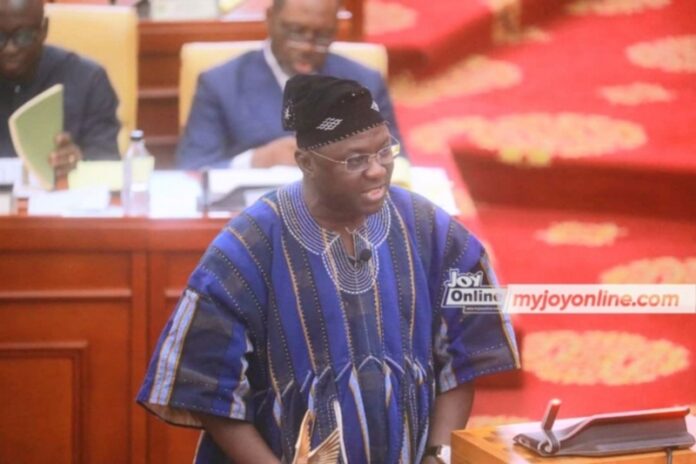The Minority in Parliament has taken a hard stance against the 2026 Budget, branding it “growthless, jobless, and minimalist,” and arguing that it fails to respond to the country’s pressing economic needs.
Addressing journalists on Friday, November 14, former Finance Minister and Karaga MP Dr. Mohammed Amin Adam, said the document lacks depth and offers little beyond what he described as “cosmetic rhetoric” from a “crawling government.”
According to him, Ghana requires a more ambitious and realistic approach.
“Ghana needs a better budget that strengthens revenue realism, expands productive investment, protects fiscal credibility, and enables the private sector to lead job creation. We can therefore describe the 2026 budget, the Galamsey budget, as growthless, jobless, and minimalist,” he said.
He argued that the structure of the budget does not signal any real shift toward jobs, productivity, or long-term transformation.
“Investment levels remain low, revenue projections are overly optimistic, and borrowing pressures are high. Key fiscal risks are under-discussed. Flagship programmes lack transparency and clear budget commitment,” he noted.
Dr. Adam further cautioned that the government’s attempt to shrink expenditure in order to project discipline may backfire.
“The lower GDP base and revenue shortfalls mechanically raise the debt-to-GDP ratio, even if the cash deficit is narrow. Sustainability requires sustained growth and credible revenue mobilisation, not austerity that undermines both,” he explained.
The caucus also pointed to fiscal vulnerabilities they say the budget fails to confront, from uncovered government auctions and short-term debt instruments that attract little interest, to unquantified liabilities at state-owned enterprises outside cocoa and energy.
He added that climate and disaster-related risks have not been properly factored into the broader fiscal strategy.
“Without addressing these risks, fiscal stability could be short-lived. Policies without clear budget risk are becoming slogans rather than deliverable programmes,” he warned.
The Minority also challenged the government’s wider handling of the economy, arguing that the reality on the ground contradicts the official narrative. “The state of the economy cannot be as good as the minister wants us to believe. It is associated with empty pockets, vanishing customers, sophisticated investors avoiding government auctions, and ministries struggling to function due to lack of basic resources,” he said.
He stressed the need for a renewed policy direction. According to him, the country needs “genuine economic leadership rather than broken promises, real fiscal discipline rather than opportunistic austerity, and a government that delivers results rather than excuses.”
He concluded with a sharp assessment of the budget’s outlook: “What we need is economic transformation, which Ghanaians were promised. But what we see now is economic stagnation masquerading as progress. The 2026 budget does not offer the hope needed to take us out of this.”
ALSO READ:


